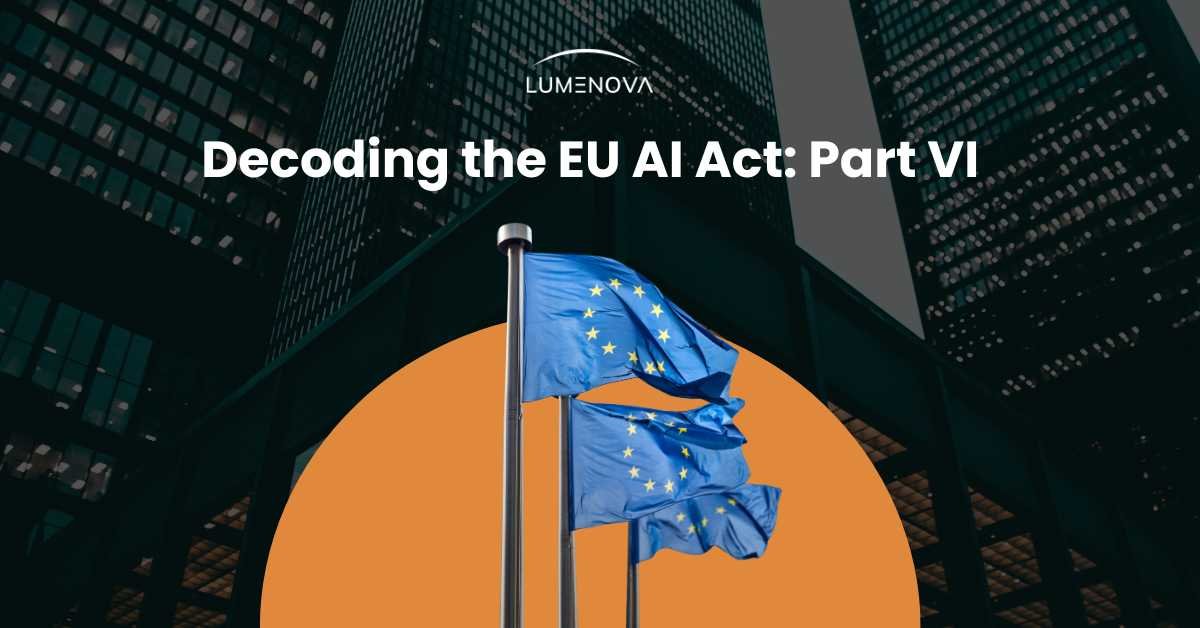Wih, cakmano kabarnyo dulur-dulur? Pastinyo seru nian kan kalo kito ngomongke EU AI Act 2025: What CRM Teams Must Do Now to Stay Compliant! Ini bukan cuma sekedar peraturan, tapi jugo tantangan sekaligus kesempatan emas buat kito-kito yang berkecimpung di dunia CRM. Bayangke, AI yang canggih nak masuk ke CRM kito, tapi harus tetep patuh samo aturan. Nah, inilah saatnyo kito bedah habis-habisan, cak mano caranya tim CRM biso tetep eksis, aman, dan pastinyo untung besar!
Kito bakal bahas mulai dari tujuan utama dari EU AI Act 2025, sampe hukuman apo bae kalo kito dak patuh. Terus, kito jugo bakal ngertiin cak mano aturan ini merubah cara kito ngelola data pelanggan. Jadi, siap-siaplah untuk menyelami dunia CRM yang makin canggih, tapi tetep aman dan sesuai aturan. Jangan lupo, kito jugo bakal bagi-bagi tips biar CRM kito tetep oke dan dak ketinggalan jaman.
Introduction to the EU AI Act 2025 and its Impact on CRM: EU AI Act 2025: What CRM Teams Must Do Now To Stay Compliant

Source: lumenova.ai
Right, so the EU AI Act 2025 is about to drop, yeah? It’s a proper game-changer for anyone dealing with AI, and that includes all the CRM teams out there. Think of it as the new rulebook for how AI gets used, especially when it comes to dealing with customer data. It’s a serious bit of kit, and understanding it is key to staying on the right side of the law and keeping your business sweet.
This Act’s not just about tech; it’s about trust and making sure AI works for people, not against them. We’re talking about a shift in how businesses approach their CRM systems, demanding more transparency, accountability, and respect for customer rights. So, let’s get down to brass tacks and see what this all means for you and your CRM game, innit?
The EU AI Act 2025 looms, demanding immediate action from CRM teams, forcing them to re-evaluate data handling. Amidst this, the choice of AI assistants becomes critical. Understanding the nuances of tools like Salesforce Einstein Copilot, Microsoft Copilot, and HubSpot AI – as detailed in this comparison: Salesforce Einstein Copilot vs Microsoft Copilot vs HubSpot AI: Which CRM Assistant Wins in 2025?
– is now a matter of compliance, not just efficiency, in order to stay ahead of the EU AI Act 2025’s requirements.
Explain the core objectives of the EU AI Act 2025.
The main aims of the EU AI Act are pretty straightforward: to protect fundamental rights, democracy, and the rule of law, while also boosting innovation and making Europe a leader in AI. It’s about creating a trustworthy AI ecosystem. It aims to ensure that AI systems are safe, transparent, and used ethically, especially where they impact people’s lives.
- Human Oversight: Making sure people are always in control of AI systems.
- Safety and Transparency: Guaranteeing AI systems are safe and that their workings are clear.
- Fundamental Rights: Protecting human rights and freedoms in the face of AI.
- Promotion of Innovation: Encouraging responsible AI development and use to boost growth.
Detail the potential penalties for non-compliance with the Act.

Source: website-files.com
The EU AI Act 2025 casts a long shadow over CRM operations, demanding immediate compliance. This necessitates a thorough review of current practices, aligning them with the new regulations. To achieve this, a strategic implementation plan is crucial; perhaps consulting The Ultimate CRM Implementation Checklist (2025 Edition) will help ensure every aspect of CRM, from data collection to AI-driven interactions, meets the legal requirements.
CRM teams must adapt swiftly to avoid penalties.
Failing to comply with the EU AI Act can hit your wallet hard, yeah? The penalties are serious and depend on the severity of the breach. Think of it like this: the more dodgy your AI system is, the bigger the fine. They’re designed to make companies sit up and pay attention.
- Fines Based on Turnover: Penalties are based on a percentage of a company’s global annual turnover. This can run into the millions, depending on the size of the company and the severity of the violation.
- Tiered Approach: The Act uses a tiered system, with fines varying depending on the type of infraction. Higher-risk AI systems that cause significant harm will attract the biggest penalties.
- Reputational Damage: Beyond the financial hit, non-compliance can trash a company’s reputation, leading to a loss of trust from customers and partners.
- Product Bans: In the worst cases, AI systems might be banned from the EU market altogether.
Provide a summary of how the Act redefines CRM practices, focusing on customer data., EU AI Act 2025: What CRM Teams Must Do Now to Stay Compliant
The EU AI Act completely reshapes how CRM systems handle customer data. It’s not just about collecting and using data anymore; it’s about doing it responsibly and ethically. This means a major overhaul of existing practices, especially when AI is involved in customer interactions. The emphasis is on transparency, data privacy, and giving customers more control.
- Transparency: CRM systems must be transparent about how AI is used, making sure customers understand when they’re interacting with an AI system.
- Data Minimization: Only the necessary customer data should be collected and used, avoiding unnecessary data gathering.
- Data Privacy: Robust data security measures are essential to protect customer information from breaches and misuse.
- Customer Consent: Clear consent is needed for using AI in CRM, giving customers the power to choose.
- Explainability: AI decisions must be explainable, with customers able to understand why a certain outcome or decision was reached.